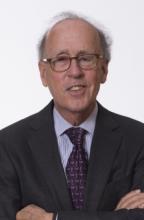America’s Saving Perils
NEW HAVEN – US politicians invariably bemoan trade as the enemy of the middle class, the major source of pressure on jobs and wages. The current presidential campaign is no exception: Republicans and Democrats alike have taken aim at both China and the Trans-Pacific Partnership, holding them up as the scourge of beleaguered American workers. While this explanation may be politically expedient, the truth lies elsewhere.
When it comes to trade, as I recently argued, America has made its own bed. The culprit is a large saving deficit; The country has been living beyond its means for decades and drawing freely on surplus saving from abroad to fund the greatest consumption binge in history. Politicians, of course, don’t want to blame voters for their profligacy; it is much easier to point the finger at others.
The saving critique merits further analysis. The data show that countries with saving deficits tend to run trade deficits, while those with saving surpluses tend to run trade surpluses. The United States is the most obvious example, with a net national saving rate of 2.6% in late 2015 – less than half the 6.3% average in the final three decades of the twentieth century – and trade deficits with 101 countries.
The pattern also holds true elsewhere. The United Kingdom, Canada, Finland, France, Greece, and Portugal – all of which have large trade deficits – save much less than other developed countries. Conversely, high savers like Germany, Japan, the Netherlands, Norway, Denmark, South Korea, Sweden, and Switzerland all run trade surpluses.
Saving imbalances can also lead to destabilizing international capital flows, asset bubbles, and financial crises. That was the case in the run-up to the financial crisis of 2008-2009, when global saving imbalances, as measured by the disparities between countries with current-account deficits and surpluses, hit a modern record. The asset and credit bubbles fueled by those imbalances brought the world to the brink of an abyss not seen since the 1930s.
Here, too, there is considerable finger pointing. Deficit countries tend to blame the yield-seeking “saving glut” that sloshes around in world financial markets. As former US Federal Reserve Chairman Ben Bernanke put it, if only countries like China had spent more, the bubbles that nearly broke America would not have formed in the first place. Others have been quick to point out that America’s supposed growth miracle probably could not have happened without the capital provided by surplus countries.
The prudent approach would be to strike a better balance between saving and spending. That is particularly important for the US and China, which together account for a disproportionate share of the world’s saving disparities. Simply put, America needs to save more and consume less, while China needs to save less and consume more. To succeed, both countries will have to overcome entrenched mindsets.
On this front, China has been leading the way, with a strategy of consumer-led rebalancing that it introduced five years ago. The results so far have been mixed, as inadequate funding of a social safety net continues to temper the support to household incomes provided by services-driven job creation and urbanization-led increases in real wages. But China has lately shown a commitment to addressing this shortcoming. Its recently enacted 13th Five-Year Plan aims to dampen fear-driven precautionary saving through interest-rate liberalization, the introduction of deposit insurance, the loosening of the hukou residential permit system (which would improve benefit portability), and relaxation of the one-child family planning policy.
The US, however, is headed in the opposite direction. There is no interest in debating the saving issue, let alone implementing policies to address it. A pro-saving US policy agenda should draw on the following: longer-term fiscal consolidation, expanded IRAs (individual retirement accounts) and 401Ks, consumption-based tax reform (such as value-added or sales taxes), and interest-rate normalization. Instead, US politicians continue to focus on keeping the consumption binge going, regardless of its implications for America’s saving imperative.
The asymmetrical response of the world’s two largest economies to their respective saving dilemmas has far-reaching consequences. To the extent that China makes progress on the road to consumer-led rebalancing, it will shift from surplus saving to saving absorption. Already, China’s gross national saving rate has declined from a peak of 52% of GDP in 2008 to around 44% this year. It should fall further in the years ahead.
The US, long locked in a codependent economic relationship with China, cannot afford to ignore this shift. After all, along with reduced current-account and trade surpluses, China’s consumer-led shift to saving absorption likely entails diminished accumulation of foreign-exchange reserves and reduced recycling of those reserves into dollar-based assets such as US Treasuries.
To the extent that America fails to boost its domestic saving, the lack of Chinese capital may well force the US to pay a steeper price for external financing, through a weaker dollar, higher real interest rates, or both. Such are the classic pitfalls of codependency: when one partner alters the relationship, there are consequences for the other.
No country can prosper indefinitely without saving. Holding the world’s reserve currency, America has gotten away with it, largely because the rest of the world let it. After all, the enablers – especially export-led economies like China, along with its resource-dependent supply chain – benefited from America’s consumption binge, as it drove an outsize expansion of global trade.
But those days are numbered. American voters – especially disenfranchised, angry middle-class workers – increasingly recognize that something does not add up. Yet US politicians continue to deflect the electorate’s anger outward, dismissing the growth subsidy that accompanies the “kindness of strangers.” It is time for politicians to own up to the uncomfortable truth: The saving deficit is the single greatest threat to the American Dream.
Stephen S. Roach, a faculty member at Yale University and former Chairman of Morgan Stanley Asia, is the author of Unbalanced: The Codependency of America and China.
Copyright: Project Syndicate, 2016.
www.project-syndicate.org
This article is brought to you by Project Syndicate that is a not for profit organization.
Project Syndicate brings original, engaging, and thought-provoking commentaries by esteemed leaders and thinkers from around the world to readers everywhere. By offering incisive perspectives on our changing world from those who are shaping its economics, politics, science, and culture, Project Syndicate has created an unrivalled venue for informed public debate. Please see: www.project-syndicate.org.
Should you want to support Project Syndicate you can do it by using the PayPal icon below. Your donation is paid to Project Syndicate in full after PayPal has deducted its transaction fee. Facts & Arts neither receives information about your donation nor a commission.

















